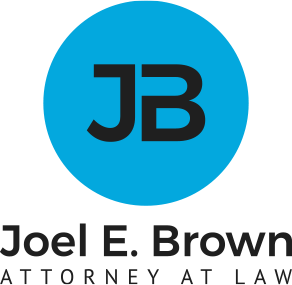A product liability claim is an accusation that a defective product caused injury to someone. These claims typically aim to recover compensation and hold parties responsible for the defect accountable for harm the product caused.
Claimants can pursue product liability claims as individuals, but a class action might also form if the same product similarly injures many people. Ultimately, you should seek legal counsel from an experienced personal injury lawyer to assess your claim and available legal options.
What Kinds of Defects Are Product Liability Claims Based On?
Product liability claims can arise from various defects, including manufacturing and design defects, and failure to provide adequate warnings or instructions. Each type of defect can lead to severe injuries, and injured consumers might need to take legal action to recover compensation for medical bills and other damages.
Manufacturing Defects
Manufacturing defects result from errors or malfunctions in the manufacturing process, leading to products that differ from their intended design. A manufacturing defect might involve using substandard materials, errors in assembly, or contamination during production.
For example, a batch of medication contaminated with harmful substances or a car part improperly installed can cause significant harm to consumers.
Design Defects
Design defects are inherent flaws in a product’s design that make it unsafe even when manufactured correctly. These defects exist before the product is made and typically affect the entire product line.
For example, a car model with a poorly designed braking system that fails under certain conditions has a design defect. Addressing design defects often requires a product recall and a redesign to ensure consumer safety.
Failure to Warn or Instruct
Failure to provide adequate warnings or instructions can also lead to product liability claims. Manufacturers are responsible for informing consumers about the potential risks of using their products. This includes providing clear instructions for safe use and warning labels about potential dangers.
A few examples of this defect might include:
- Failing to warn consumers about possible and known side effects of using a drug
- Failing to warn consumers about allergens in a food product
- Failing to warn consumers about the flammable nature of a cleaning product
If a product poses risks that are not obvious to the user and the manufacturer fails to provide adequate warnings, they can be held liable for any resulting injuries.
Legal Basis for Product Liability Claims
Product liability claims are based on three main legal theories: negligence, strict liability, and breach of warranty. Each theory provides a different basis for holding manufacturers and other parties accountable for defective products.
Negligence
A negligence claim requires proving that the manufacturer or other responsible party failed to exercise reasonable care in the product's design, production, or distribution. This failure must directly result in the consumer’s injury. Many product liability claims are based on this theory.
Strict Liability
Strict liability allows consumers to file a claim without proving negligence. Instead, the focus is on the product itself. If a product is defective and causes harm, the manufacturer can be held liable regardless of whether they exercised care during the manufacturing process. This theory simplifies the consumer’s burden of proof and focuses on the defect and the resulting injury.
Breach of Warranty
Breach of warranty claims arise when a product fails to meet the terms of its express or implied warranties. Express warranties are specific promises the manufacturer makes about the product’s safety or performance, while implied warranties are unspoken, unwritten guarantees that the product will meet certain minimum standards.
When a product fails to meet these warranties and causes injury, the consumer can file a claim based on breach of warranty.
Which Kinds of Injuries Can a Defective Product Cause?
Defective products can pose significant risks to consumers, leading to various types of injuries. These injuries can range from minor inconveniences to life-threatening conditions, depending on the nature of the defect and the product involved.
Defective products commonly cause injuries such as these:
- Burns: Faulty electrical appliances, such as heaters, stoves, and hairdryers, can overheat or malfunction, causing burns or scalds.
- Lacerations: Sharp edges or parts on defective tools, kitchen appliances, or toys can result in severe cuts or even amputation.
- Bone fractures: Defective ladders, furniture, or playground equipment can collapse or break, leading to broken bones.
- Poisoning: Contaminated food, beverages, or pharmaceuticals can lead to poisoning, causing serious health issues or fatalities.
- Choking: Small parts in children's toys or poorly designed packaging can pose choking hazards, particularly for young children.
- Electric shock and electrocution: Faulty wiring in electrical devices can result in electrical shock or electrocution, causing severe injury or death.
- Allergic reactions: Products containing undisclosed allergens or irritants can cause severe allergic reactions ranging from rashes to anaphylaxis.
- Head injuries: Malfunctioning helmets, car seats, or airbags can fail to protect, resulting in traumatic brain injuries or concussions.
- Eye injuries: Defective safety goggles, contact lenses, or cosmetic products can cause eye injuries, leading to vision impairment or blindness.
Injuries from defective products can have long-term consequences, often permanently affecting the victim's quality of life and financial stability. Seeking legal assistance can help victims obtain compensation for their injuries and hold manufacturers accountable for their negligence.
Did a Defective Product Injure You? We Can Help.
When a defective product causes harm, the consequences can be both physically and emotionally devastating. Navigating the legal landscape in such situations can be complex and overwhelming. Our legal team at Joel E. Brown, Attorney at Law stands ready to provide the support and expertise needed to pursue compensation for your injuries.
With extensive experience in handling product liability claims, we understand the intricacies involved and are committed to advocating for our clients’ rights. If a defective product injured you, reach out to Joel E. Brown, Attorney at Law for legal support.
Contact us today to request a consultation and learn more about how we can help.

